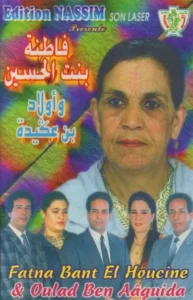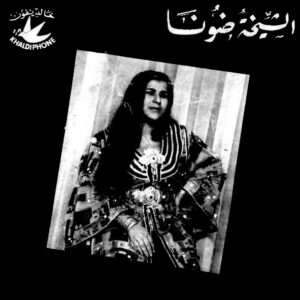muziek uit het Midden Oosten, maghreb
Aflevering: Aíta uit Marokko
Aita, meaning “call” or “cry” in Arabic, is a Bedouin style of Arabic Folk Music from rural Morocco. It features a vocalist called a sheikhate, usually a woman, or a manimitating a woman, singing piercing notes, accompanied by scratchy viola and hand drums. Originating from the poetry of 11th-century Arabian migrants, it has accompanied Moroccan village festivities, marriages, and harvest celebrations for centuries and is one of the traditional precursors to the more modern Moroccan Chaabi.There are a number of regional variants of aita. Most variants start off slow, then pick up the pace into fast rollicking rhythm. The poetic lyrical themes include love, beauty, nature, and the pain and hardships of daily life. The stripped-down, visceral focus on rhythm has musical ties to the trance traditions of the Sufi Moroccans; aita songs often begin with the invocation of Allah and the saints (bron : rate your music)
Speellijst
1 Aita Mon Amour- Sidi H’med 6’11

2 Fatna Bent el Houcine & Ouled Ben Aguida -Allah Injah Loulad 8’49

3 Fatna Bent el Houcine & Ouled Ben Aguida -Ya L-Ghayeb Suwwel 7’53
4 Fatna Bent el Houcine & Ouled Ben Aguida -Sh’aibiya 6’55
5 Bidaouya, Khadija -Jab dara 7’28
6 Cheikha Donna & Bouchaib Jdidi – Shufu mamy 7’33

7 Hajja Hammounia – Libla Yaafou 9’54
8 Fatna Bent el Houcine & Ouled Ben Aguida -Aita Jbaliya 4’44








